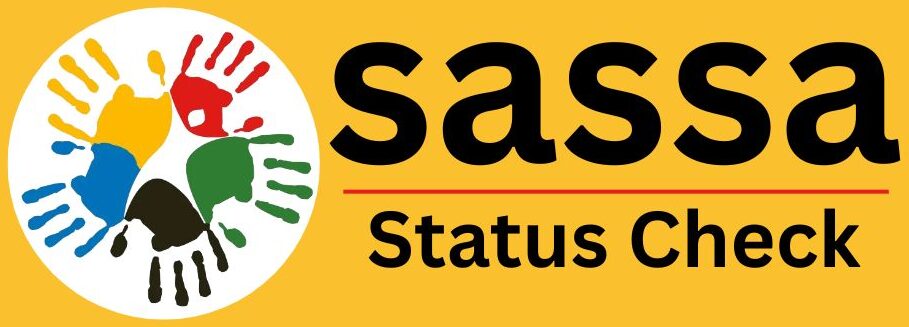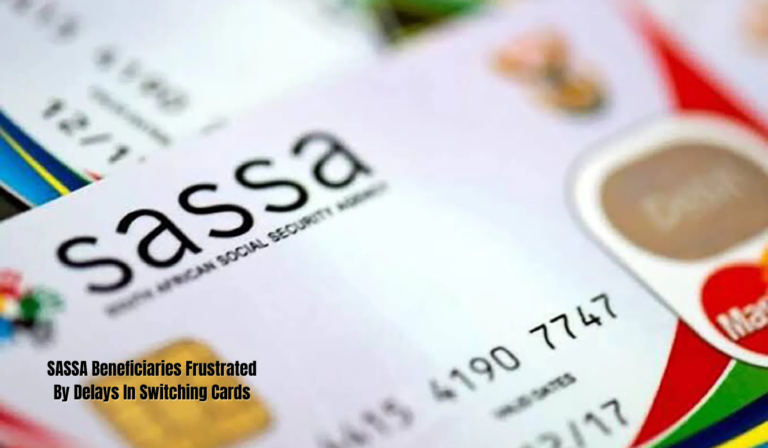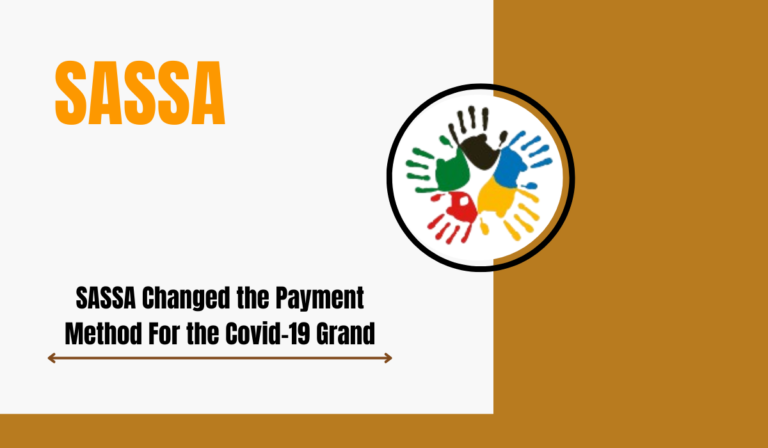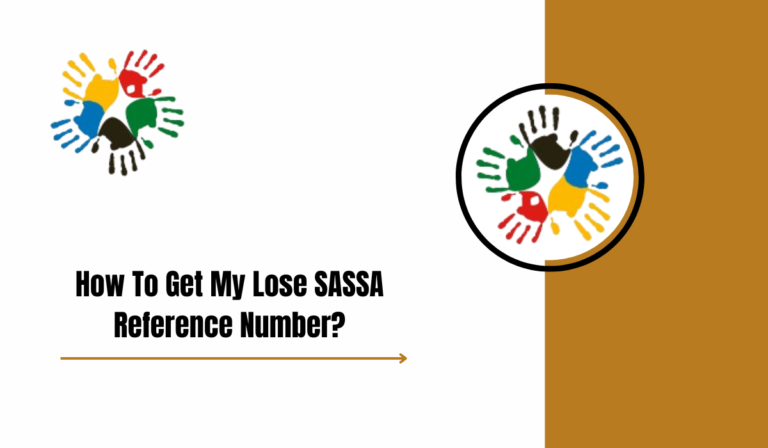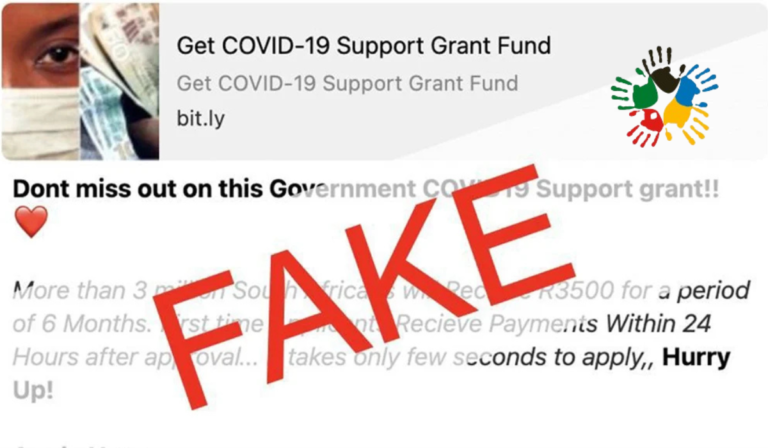SASSA Grant-In-Aid – SASSA On Access To Social Grant-in-Aid Benefits
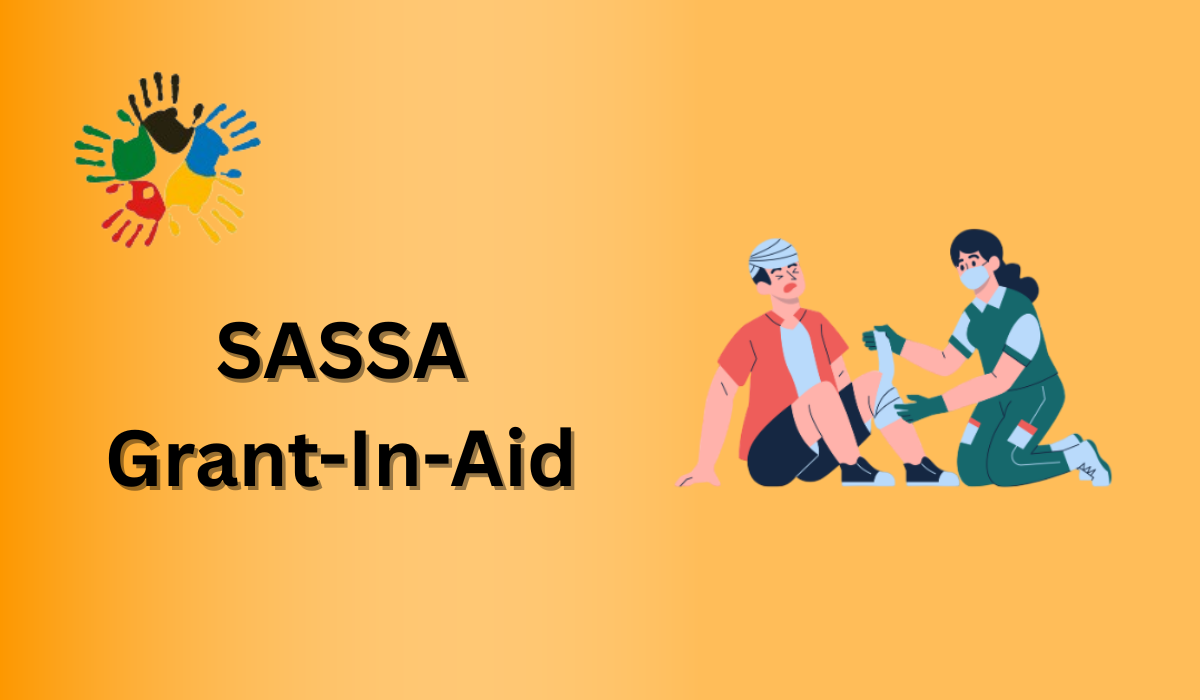
SASSA Grant-In-Aid is a social grant administered by SASSA that assists current social grant recipients who require full-time care at home and are unable to care for themselves independently. With the grant, they will be able to hire someone full-time to provide care for their mother.
Grant-in-aid is available only to grant holders of disability, old age, and war veteran grants, and it is provided as an addition to your current grant. Applicants can apply for Grant-In-Aid at the same time as they apply for the main grant.
Eligibility Criteria For SASSA Grant-In-Aid
The following eligibility requirements must be met before applying for the Grant-In-Aid:
- If you wish to receive a main grant, you must meet the eligibility criteria, including the means test.
- You must already be the recipient of an old age grant, a disability grant, or a war veteran grant.
- You must have a mental or physical disability that makes it impossible for you to care for yourself and require full-time home care.
- There must be no state station where you are currently receiving care.
- You must have a valid medical assessment report to prove that you require full-time care or support. Private doctors may submit reports, but they should not be older than 3 months.
How much is the SASSA Grant-In-Aid Amount?
According to the 1 October 2023 grant increase, each person will receive R510 per month as grant-in-aid. As in previous years, the amount of the Grant-in-Aid has not increased this year, and will remain the same throughout 2025.
How much does that Grant-In-Aid Cost?
A SASSA grant-in-aid application is free of charge and there is no service fee associated with it.
Grant-In-Aid Application Procedure
You can apply for SASSA Grant-In-Aid at your nearest SASSA branch by filling out their application form. Applying online is also possible through the SASSA services website by following the instructions on Applying online.
The application form is available at SASSA offices, and it must be completed in the presence of a SASSA officer. The Grant-In-Aid application can be submitted simultaneously with your application for disability assistance, old age assistance, or war veteran assistance.
It may be possible for one of your family or friends to apply for you if you are too old, sick, or disabled to do so on your behalf. Those applying on your behalf should obtain a letter from you and a doctor’s note explaining why you are unable to visit SASSA in person.
If you wish to apply for Grant-In-Aid, you will need a valid medical assessment report showing that you have a severe disability and need full-time care at home. Any doctor can write the report as long as it does not exceed 3 months old, whether it is a private doctor or a state-appointed doctor.
If you have the report, you can go to the SASSA office and obtain the application form. It is mandatory for you to complete the SASSA form in front of an officer. It is possible for you to fill out the application yourself. When you find filling out the application form hard and confusing, the officer will be helpful in completing it for you.
Once you have completed the form, submit it to the SASSA officer along with the medical assessment report. You will be interviewed by the officer (or your appointed person will conduct the interview), fingerprinted, and informed if you qualify for the grant.
Once the application is complete, you will receive a dated stamp receipt from SASSA officer name you were assigned to assist you. In order to prove application receipts, you need to keep them even if you are not qualified.
Documents Required to Apply for a Grant-in-Aid
When applying for a Grant-In-Aid, it is necessary that you bring the following documents (original or certified copies) with you to the SASSA office:
- You must provide your original 13-digit bar-coded ID (identity document).
- Please provide a copy of your medical assessment proving that you are disabled and that you require full-time care at home. The report can be from a private doctor, but it must not be older than 3 months.
A document confirming your marital status is required:
- Marriage Certificate: if you are married, please provide it.
- Divorce Decree: When a marriage ends in divorce.
- Death Certificate: if your spouse has passed away.
- Affidavit or Sworn Statement: If you are single, submit this form.
SASSA Grant-In-Aid affidavit (signed and completed).
Apply for a Grant-in-aid
Applicants need to follow a very simple application process. To get started, follow these steps:
- Step 1: Visit the SASSA Office: SASSA requires that you visit the office in person. Your application can also be submitted by someone else.
- Step 2: Prepare Your Documents: Be sure to gather all required documents (ID, medical report, proof of income, assets, etc.).
- All essential documents should be kept in a proper file for easy submission.
- Step 3: Obtain an Application Form: Visit the SASSA office to obtain a Grant-in-Aid application form.
- Before filling out the form, read it carefully to understand all the requirements.
- Step 4: Fill out the Form: To avoid mistakes, start by filling out the form with a lead pencil.
- For official submission, fill out the final version with an ink pen once you’re satisfied.
- Step 5: Attach the Required Documents: Be sure to staple the required copy of each document to your application form.
- Step 6: Submit Your Application: Please give the SASSA officer the completed forms and documents.
- A receipt or reference number should be requested as proof of submission.
- Step 7: Wait for Processing: Your application will be reviewed by SASSA, and if necessary, an assessment will be conducted.
- The outcome will be notified to you via SMS or a formal letter.
Grant-In-Aid Application Form
SASSA Grant-In-Aid Application Processing Time
The processing time for a Grant-in-Aid application is approximately 3 months. Payments will begin once your application has been approved. When your grant application has been processed and approved, you will receive all payments as soon as possible from the date you submitted your application. If your application is rejected, SASSA will provide you with an explanation as to why you were not approved for the grant.
What to do next if the SASSA Grant-In-Aid Application is not Accepted?
If your grant application is refused but you believe that the decision was made in error, you can request that the SASSA reconsider the decision and resubmit your application. In the event your reconsideration request is also denied, but you still disagree with SASSA’s decision, you have the right to appeal the decision to the Ministry of Social Development’s National Department of Social Development. You must file your appeal within 90 days of the date your application is submitted.
Your appeal will be reviewed by the Ministry of Social Development for a decision. SASSA will reverse its decision if the appeal board agrees with your appeal, and you will begin receiving your grant payments. You will receive a written explanation of the decision of the appeal board if the appeal is denied.
What If My Grant Application Is Declined?
If your SASSA grant application is declined, don’t worry you have the right to appeal. Here’s a straightforward step-by-step guide to help you through the process:
Step 1: Find Out Why Your Application Was Rejected
- Check the Notification: Go through the message or letter you received from SASSA to understand the reason for the rejection.
- Ask for Clarification: If it’s unclear, contact your nearest SASSA office in person or by phone to get more details.
Step 2: Get Your Appeal Ready
- Write an Appeal Letter: Address it to the Minister of Social Development. Make sure to include:
- Your full name, ID number, and contact info
- Reference to your declined application
- A short explanation of why the decision was wrong
- Any facts or documents that support your case
- Collect Supporting Documents: Attach the following:
- A copy of your ID (13-digit barcoded or Smart ID)
- The letter or message showing your application was declined
- Any additional evidence (proof of income, medical reports, etc.)
Step 3: Submit the Appeal
- Where to Submit: Send your appeal to the Minister of Social Development’s Office.
- Visit your nearest SASSA regional office to ask how to send it (by post, email, or in person).
- Keep Copies: Make sure to keep a copy of your appeal letter and all documents.
- If you submit in person, ask for a receipt as proof.
Step 4: Wait for the Decision
- Processing Time: Reviews can take a few weeks to a few months, depending on how many appeals are being processed.
- Follow Up: Stay in touch with SASSA to check your appeal status.
Step 5: Appeal Outcome
- If Approved: You’ll be notified, and your grant payments will begin as per SASSA’s schedule.
- If Denied Again: You can take the case further by appealing to the Social Assistance Tribunal.
SASSA Grant-In-Aid Payment Process
Once your grant is approved, you’ll begin receiving payments as soon as you apply. Payment dates for SASSA are released every month since they do not have fixed dates.
There are three ways in which SASSA will pay the grant payments to you (you must select one of them):
- You may receive a direct deposit into your bank account or Postbank account. The banks may charge you a service fee for this service.
- You can withdraw your grant payment in cash from SASSA-partnered retail outlets such as Pick n Pay, Shoprite, Boxer, Checkers, Usave, and Spar.
- In some cases, from specific institutions (e.g., elderly homes, disability centers, non-profit organizations).
- Please complete the Consent Form for SASSA Grant Bank Payment and submit each of the following documents if you wish to receive grant payments through a bank account.
- Identification documents, birth certificates, and driving licenses are considered proof of identity.
- Number of your bank account, the account should be in your own name.
- Please provide a 3 month bank statement, which should include your name and account number.
- If you need to update your banking details or payment method, you can do so at any time. It is only necessary for you to fill out the form at the welfare office. After the verification process is complete, the payments will be received through the new payment method from the following month.
- In the event that you are unable to collect your grant yourself for any reason (e.g. old age, disability, etc.), you may nominate someone on your behalf to claim the grant on your behalf.
SASSA Grant-In-Aid Balance Check
SASSA offers a balance check service that allows you to verify the remaining balance of your grant. You should review your balance on a regular basis in order to remain abreast of your funds, which will facilitate your financial management and allow you to make informed grants decisions. In the event that your grant-in-aid application is approved, and you begin receiving grant payments, you may need to periodically review your balance by using the following methods:
- To obtain the USSD code 1203210# or 12069277#, please dial your cellphone
- You may use any ATM (normal bank charges may apply)
- Please contact SASSA via WhatsApp at 082 046 8553
- Please contact SASSA’s toll-free number at 0800 601 011
SASSA Grant In Aid Reviews
The SASSA reserves the right to review your grant based on the income you declared during the application process. Whenever your primary social grant (old age benefit, disability benefit, or veteran’s benefit) is being reviewed, your Grant-in-Aid will be reviewed as well.
These reviews are conducted in order to ensure that you still meet the means test criteria of the grant and that your financial circumstances have not improved. It is also intended to verify that you are still alive. If your circumstances change, you should always update your application to make the review process easier.
SASSA will notify you in writing three months before your review deadline or the deadline for submitting your life certificate (proof that you are still alive). A written notification will also include the date and location of the review.
The SASSA office must receive the life certificate every year from individuals who receive their grant through a bank, institution, or agent. SASSA officials will conduct the review at your home if you are bedridden. A compliance receipt containing your application reference number will be provided to you at the conclusion of your review.
Refugee applicants are subject to a formal review process upon reaching the expiration of their refugee status.
Grant Suspension For Reasons
There are a number of reasons that may result in the grant being suspended:
- Your circumstances may change (financial or medical)
- False or fraudulent information was provided by you.
- When your grant was reviewed, you failed to cooperate.
- This is the outcome of the review.
- If your grant has been approved by mistake.
Grant Restoration
It is possible to lodge an appeal if you believe your grant was suspended because of an error or you disagree with SASSA’s decision within 90 days of the date the grant was suspended, or if you disagree with the decision of SASSA, by going to the National Department of Social Development of the Ministry of Social Development.
Reasons for the Lapsing of Grant-In-Aid
If any of the following conditions are met, your grant-in-aid will lapse:
- When you pass away.
- When asked, you cannot provide proof of your existence. To ensure that you are still alive, your grant will be reviewed annually.
- If you have not received your grant payments for three months in a row, you may request that they begin again, but if it has been over 90 days you will need to request a new grant.
- You are admitted to a facility that is fully funded by the government, such as a hospital or prison.
- You have been absent from the country for more than 90 days without notice.
- It is no longer possible for you to receive full-time care at home.
Responsibilities of the Beneficiaries
You are expected to meet certain responsibilities as a SASSA grant holder:
- SASSA should be kept informed about any changes in your financial or personal circumstances in order to ensure accuracy.
- If your address or personal contact details need to be updated, SASSA needs to be informed immediately.
- It is always a good idea to provide the correct information because SASSA does not tolerate fraud.
- As SASSA sends notices and updates to the address you submitted in your application, you must keep the SASSA updated in the above scenarios to avoid any interruption or suspension of your grants. Your grants may be suspended if you do not notify SASSA of any changes to your address or contact information, as SASSA will not be able to contact you.
SASSA Contact Information
You may contact SASSA through the following channels if you have any additional questions:
- Contact the SASSA Toll-Free Call Centre at: 0800 60 10 11
- Contact SASSA Head Office: 012 400 2322
- Please send your queries to the SASSA Head Office: [email protected]
- Find a list of SASSA offices across the country: SASSA offices near you
- SASSA welcomes additional questions via the following channels:
- Contact the SASSA Toll-Free Call Centre at: 0800 60 10 11
- Contact SASSA Head Office: 012 400 2322
- Email your queries to SASSA Head Office: [email protected]
- Find a list of SASSA offices across the country: SASSA offices near you
Why Is My Payment Date Delayed?
There are many reasons why your payment date may be delayed. The following are a few of them:
- Verification Process Delays: SASSA may still be verifying documents, medical reports, and eligibility for you.
- Banking Issues: If your bank details are incorrect or your bank account verification fails, payment delays may arise.
- Incomplete or Expired Documents: Your payment may be delayed if any of your submitted documents are missing, outdated, or not attested.
- System or Technical Errors: When SASSA’s payment system is malfunctioning, scheduled payments may be delayed.
- Public Holidays or Weekends: Weekend or public holiday payments will be processed on the next workday following the weekend or public holiday.
- Reassessment Requirements: SASSA may require a medical evaluation or additional information before moving forward with your payment.
- Change in Personal Information: If you change your ID, address, or bank information without notifying SASSA, payment processing may be disrupted.
FAQs About SASSA Grant-In Aid
What is a grant-in-aid grant?
Ans: A Grant-in-Aid program is a social grant designed to meet the basic needs of adults who are unable to take care of themselves, and who are certifying by a medical officer that they are in need of full-time care from someone else.
What is the SASSA care in aid?
Ans: You can apply for the care dependency under the South African Social Security Agency (SASSA) at a counter service point at a regional office. To make an application, you do not have to pay anything. In the presence of an officer from SASSA, you will complete your application form.
How much does SASSA pay for caregivers?
Ans: It is expected that you will receive R2 310 per month. In what manner will you be paid? South African Social Security Agency (SASSA) will pay you the grant by one of the following methods: cash at a specific pay point on a particular day.
Conclusion
SASSA Grant-in-aid is a special and additional benefit for SASSA grant beneficiaries. The grant is meant to provide support to disabled people who require private caretakers for their wellbeing. There is a payment of R540 for this grant and it can be obtained either from Pick n Pay or by direct bank transfer.
